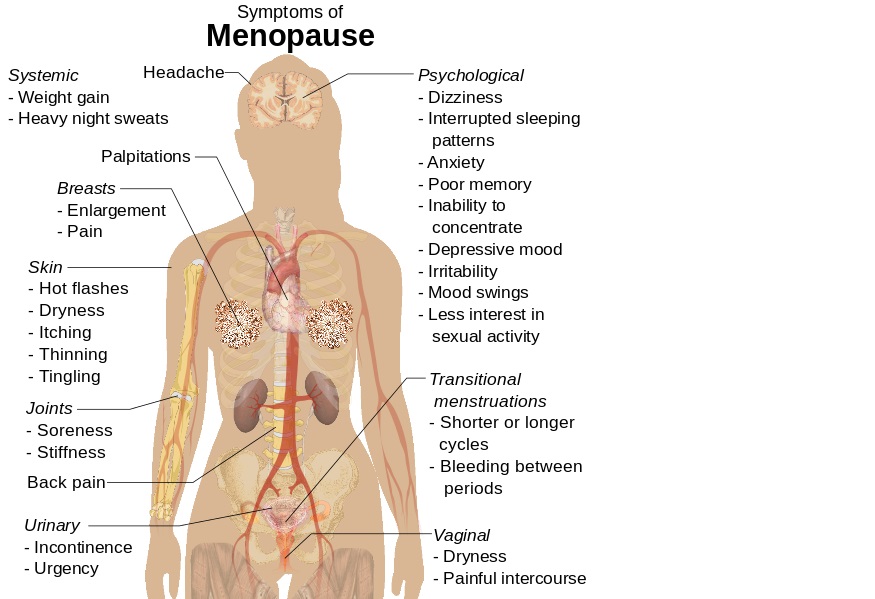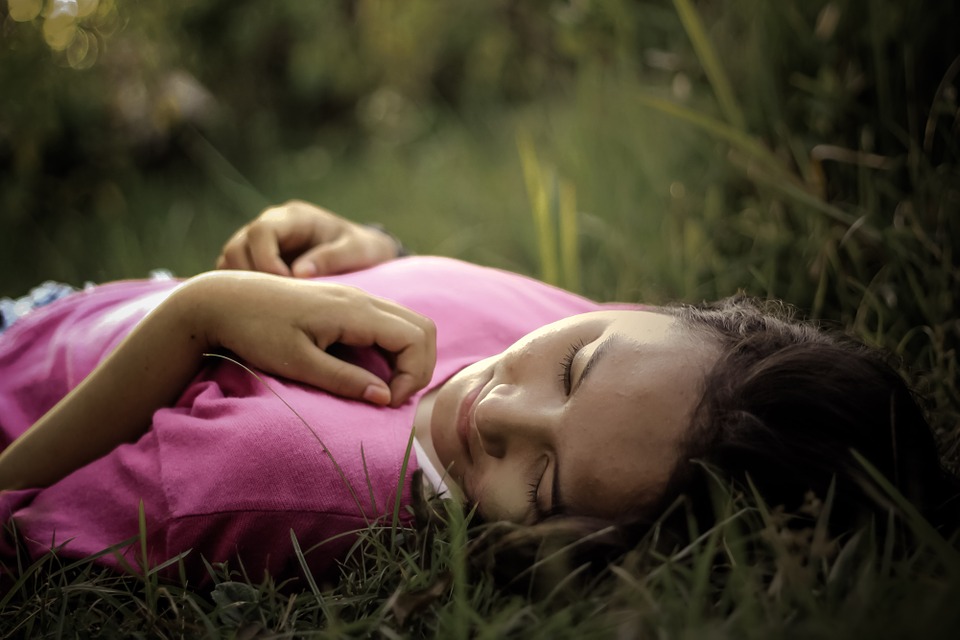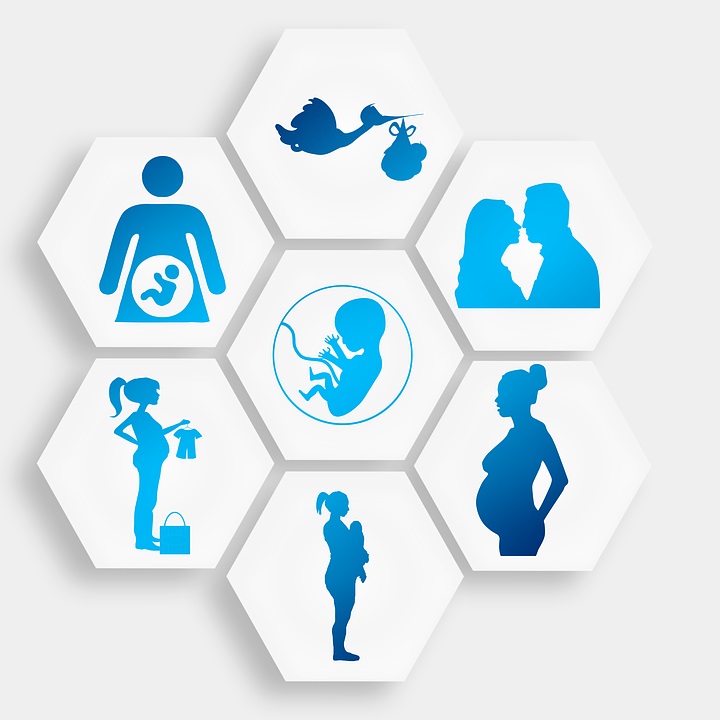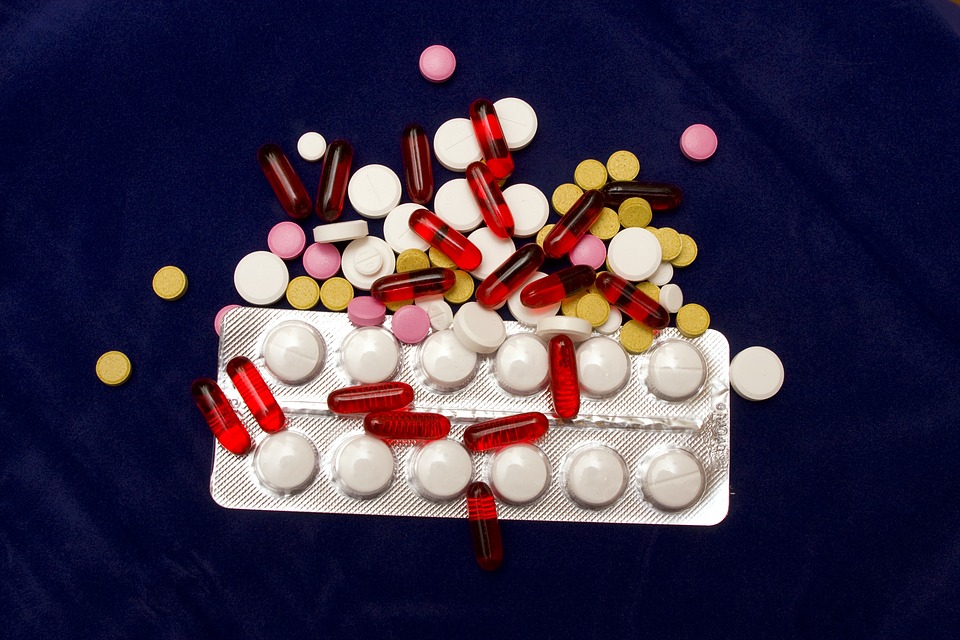Women should beware of menopause

Enthusiasm will wane. Interest in sex will be lost. Periods become irregular. Finally, they stop permanently. In women, these conditions are explained as Menopause. At this stage, where even the hormone production depletes, women should take care of their health.
What is this phase
 If there are no periods for 12 months at a stretch, then it can be safely concluded as Menopause. This will not happen overnight, but gradually. This phase is called Menopause transition period (starting of menopause). Every women has different experiences about this. Production of oestrogen and progesterone hormones, stops. Hormones travel all over the body, via blood circulation and help in starting or stopping, increasing or decreasing physical and chemical activities in all systems, in the body. Ovaries in women produce oestrogen and progesterone. These two hormones help in maintaining the menstrual cycle and in procreation. Ovarian follicles are reduced in Menopause. Reaction of the ovaries to Luteinizing hormone and follicle stimulating hormone, that are useful for procreation, will decrease. On the whole production of hormones decreases. This is what primarily occurs in Menopause stage. This effects the health of the individual.
If there are no periods for 12 months at a stretch, then it can be safely concluded as Menopause. This will not happen overnight, but gradually. This phase is called Menopause transition period (starting of menopause). Every women has different experiences about this. Production of oestrogen and progesterone hormones, stops. Hormones travel all over the body, via blood circulation and help in starting or stopping, increasing or decreasing physical and chemical activities in all systems, in the body. Ovaries in women produce oestrogen and progesterone. These two hormones help in maintaining the menstrual cycle and in procreation. Ovarian follicles are reduced in Menopause. Reaction of the ovaries to Luteinizing hormone and follicle stimulating hormone, that are useful for procreation, will decrease. On the whole production of hormones decreases. This is what primarily occurs in Menopause stage. This effects the health of the individual.At what time
Menopause begins from 45 years to 51 years of age. In some, it begins early like at 30 years. For some, it begins very late, like at 60 years of age. There are no tests to determine, when exactly menopause will begin. It has nothing to do with the age at which maturity occurred.
How to identify
 When oestrogen hormone is reduced, its effects are seen in all the systems in the body. It affects the nervous system, urinary tract, heart, blood vessels, bones, breasts, skin, hair, mucus membranes and pelvic muscles. When these are affected, the symptoms can be seen physically. Almost all symptoms are seen in the primary phase of menopause. They will exist for several years. However, it might not be common to all. Some women step in to menopause quietly, without any symptoms or problems.
When oestrogen hormone is reduced, its effects are seen in all the systems in the body. It affects the nervous system, urinary tract, heart, blood vessels, bones, breasts, skin, hair, mucus membranes and pelvic muscles. When these are affected, the symptoms can be seen physically. Almost all symptoms are seen in the primary phase of menopause. They will exist for several years. However, it might not be common to all. Some women step in to menopause quietly, without any symptoms or problems.Brain and nervous system
When estrogen reduces, there are ups and downs in digestive system. This affects the brain and nervous system. As a result, there is a change in behaviour, lapse of memory, lack of concentration, irritability, fatigue, hot flushes, night time sweat, stress, anxiety and depression. Many such symptoms are seen. Sleep evades and adds to the problems.
Heart
Because of lack of oestrogen, heart and its blood vessels are affected. As a result, there is heart attack or stroke due to lack of blood supply to the brain. Also, other heart-related problems cannot be ruled out. Those who have undergone hysterectomy (removal of the uterus) or Oophorectomy (removal of ovaries), are at a higher risk of heart-related disease, as they reach menopause stage quickly. The fact that menopause could be this dangerous, depends on many factors. Among them, family history, lifestyle and food habits too play a key role.
Procreation
 Menopause stalls the process of giving birth or procreation. Because the ovarian functioning is stopped and oestrogen production is reduced. Periods, that occur every month right from the time of maturity, stop with menopause. So there is no chance of getting pregnant. Periods become irregular in the starting of menopause stage. Either there is excessive discharge or there is very little bleeding. The frequency of the periods either increases or reduces. In women, periods stop for several months at a stretch, only on two occasions: When they are pregnant or when they enter menopause. If there are no periods for at least 12 months, then it can be said to be menopause. In case there is bleeding, after such a gap, then the physician has to be consulted, to check for presence of cancer.
Menopause stalls the process of giving birth or procreation. Because the ovarian functioning is stopped and oestrogen production is reduced. Periods, that occur every month right from the time of maturity, stop with menopause. So there is no chance of getting pregnant. Periods become irregular in the starting of menopause stage. Either there is excessive discharge or there is very little bleeding. The frequency of the periods either increases or reduces. In women, periods stop for several months at a stretch, only on two occasions: When they are pregnant or when they enter menopause. If there are no periods for at least 12 months, then it can be said to be menopause. In case there is bleeding, after such a gap, then the physician has to be consulted, to check for presence of cancer.Bones affected
After 30 years of age, bone growth is not in proportion to bone depletion. The cells will lose their moisture, due to decrease in production of oestrogen. The individuals are at a risk of Osteopenia and osteoporosis. Five to 10 years after menopause sets in, risk of fractures or bone disorders grows.
Skin
Our skin that covers the body changes, after onset of menopause. The body's capacity to retain water, decreases as the oestrogen levels are down. Skin will lose it's elasticity. Dryness increases, along with itchiness and wrinkling. Wounds do not heal soon. Oestrogen helps in the healing of wounds, which has been proved through many studies.
Kidneys
Due to decrease in oestrogen levels, kidneys become dry and shrink. They lose their elasticity. Frequency of urination increases. Urine leaks on coughing, sneezing, laughing or even carrying weights. Urinary tract infections occur frequently. Oestrogen normally prevents such infections.
Genitals
 Decrease in oestrogen hormone affects the genitals and there is dryness of the vagina. Irritability and discomfort increases. Muscles shrink and lubrication is reduced. There is discomfort and pain during sexual intercourse.
Decrease in oestrogen hormone affects the genitals and there is dryness of the vagina. Irritability and discomfort increases. Muscles shrink and lubrication is reduced. There is discomfort and pain during sexual intercourse.How to face menopause
Menopause is unavoidable at some stage, for every woman. However, some precautions are necessary to protect the health. Women should be alert to symptoms of menopause, with advancing age. Ensure if there is any effect on any parts of the body. Problems can be resolved, if doctors are consulted, comprehensive tests are done and suggested treatments and precautions are taken.
Hormone therapy
 Doctors try to replenish the decreased hormones, through external means, when ovaries stop functioning or some changes occur in the body due to hormonal imbalance, during menopause. They will recommend tablets, which are a combination of oestrogen and progestin (synthetic form of progesterone), for those who have not undergone hysterectomy. In case only oestrogen is used, the risk of endometrial cancer increases. That is why progestin is also suggested. A tablet called Davy is available. This contains oestrogens and Bazedoxifene. Even FDA has approved this. This reduces hot flushes and osteoporosis.
Doctors try to replenish the decreased hormones, through external means, when ovaries stop functioning or some changes occur in the body due to hormonal imbalance, during menopause. They will recommend tablets, which are a combination of oestrogen and progestin (synthetic form of progesterone), for those who have not undergone hysterectomy. In case only oestrogen is used, the risk of endometrial cancer increases. That is why progestin is also suggested. A tablet called Davy is available. This contains oestrogens and Bazedoxifene. Even FDA has approved this. This reduces hot flushes and osteoporosis.For those who have got their uterus removed, doctors suggest only oestrogen therapy. For others, who are in primary phase of menopause, progesterone is suggested. Hot flushes are reduced due to this therapy. There are oral medicines that are taken as part of the hormone therapy. There is a cream or gel treatment for applying on the skin. Hormone inducing patches are stuck on the skin. Even those that can be injected via the genitals too are available. A low percentage of women have side effects due to these medications. However, if these are taken under medical supervision, they will suggest changes. Regular visits to the doctor, therapy with their suggestions and advises, will make menopause a happy phase. However, ignoring the problems due to menopause is harmful.








